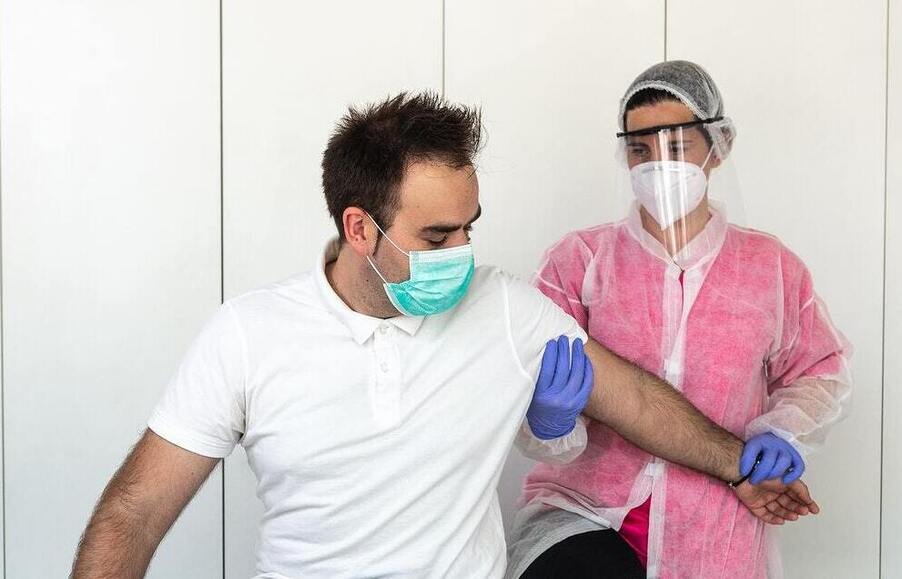How Physiotherapy is helping COVID Long-Haulers get moving!
The COVID-19 pandemic has undeniably changed everything about our current state of being; between the physical distancing restrictions, limited social interactions, financial and employment changes, and having limited access to recreation and leisure activities – it almost feels like we’re living in a sci-fi movie! (…and not in a good way!)
Aside from the devastating and life-threatening effects of the virus on people’s health, another concern is on the rise. This growing concern (and those suffering from it) goes by many names – “Long COVID”, “post-acute COVID-19”, or more commonly “COVID Long Haulers”. A formal definition has yet to be decided upon, however; most published studies agree that an individual is considered to be a COVID Long Hauler is they have persisting symptoms for 3-6+ months after they initially contracted the virus.
These symptoms can vary widely from person to person, but long haulers are largely categorized into two groups: those who experience permanent damage to their lungs, heart, kidneys, and/or brain, or those who experience symptoms despite no proven damage to these organs.
What The Research Say About Long Lasting Symptoms of Covid-19?
As more research is being conducted, it’s becoming more evident how prevalent Long COVID actually is! A recent study published in the US found that 35% of COVID 19 survivors had ongoing symptoms 3 weeks after their infection. It is currently estimated that 10-30% of COVID survivors have persisting symptoms after 12 weeks from the initial infection and 34% of people receive a diagnosis of a neurological or psychological condition within 6 months of their infection. These statistics are staggering, frightening, and more importantly, are continuing to climb as more research becomes available!
What Are The Long Lasting Symptoms of Covid-19?
What does Long COVID look like? What does it feel like? Unfortunately, the number and severity of symptoms is extremely widespread, however; there are several symptoms that appear to be consistent amongst COVID long haulers:
[one_second]
- Fatigue
- Body aches, joint pain
- Muscle weakness
- Shortness of breath, difficulty breathing
- Chest pain
- Difficulty concentrating
- Balance and vestibular issues
- “Brain fog” or confusion
- Inability to exercise
[/one_second]
[one_second]
- Headache
- Sleep disruptions
- Gastrointestinal issues
- Memory issues
- Mood changes; feeling anxious or depressed
- Feeling ‘disorganized’ or can feel easily overwhelmed
- Metabolic upset (worsening of existing conditions such as diabetes)
- Skin rashes
[/one_second]

no-repeat;left top;;
auto
The good news is…there is hope! There is help! There is something that can be done!
Current research suggests that a holistic or integrated approach to COVID19 Long Hauler rehabilitation or treatment is ideal, to ensure all aspects of a person’s well-being are being treated, not just their physical symptoms. Various programs are available, including programs at Pillars of Wellness.
Physiotherapy has been considered an essential service since the onset of the pandemic, but how can physiotherapy help COVID Long Haulers? Read on to find out more!
How Can Physiotherapy Help Covid Long Haulers In Their Rehabilitation?
Feeling weak and fatigued? Physiotherapy can help!
- After an assessment, your physiotherapist will provide you with appropriate strengthening and endurance exercises that will gradually help you feel more energetic and stronger!
Feeling short of breath or have a racing heartbeat? Physiotherapy can help!
- Physiotherapists can prescribe simple and easy breathing exercises that will help increase your overall lung capacity, and can help minimize shortness of breath
- Heart rate dysregulation (especially with exercise) has been observed with COVID Long Haulers. A physiotherapist can perform a graded-exercise test to help determine what amount of exercise is safe for you, what heart rate you should be working at, and they will guide you on how to slowly increase your exercise tolerance
Feeling off balance, dizzy or suffering from falls? Physiotherapy can help!
- Physiotherapists at Pillars of Wellness have added training in vestibular assessment and treatment. If you are experiencing dizziness, vertigo, or other vestibular symptoms since having COVID, an oculomotor and vestibular assessment might be right for you!
- As a part of your exercise program, your physiotherapist will give you lots of tips and tricks how to minimize your risk of falling – to help you feel safe and confident in your home environment!
- Our Physiotherapist, Janna Marvyn, is also an ADP authorizer for Mobility Devices, so she can help prescribe a rollator walker to help keep you stable and feeling more secure while walking.
Feeling stiffness and pain? Physiotherapy can help!
- Physiotherapists utilize manual therapy treatment techniques to help decrease joint and muscle pain. A thorough assessment will be conducted to figure out the best method of treatment, and a home exercise program will be prescribed.
As you can see, Physiotherapy can help manage many of your physical symptoms related to Long COVID. If you are a COVID Long Hauler and are suffering from any of these symptoms, please contact Pillars of Wellness today to find out how we can help! We offer 15 minute complimentary consultations for all of our services, so you can speak to one (or more!) of our clinicians and feel confident that you are receiving the best care possible.

Shree Solanki, Physiotherapy


